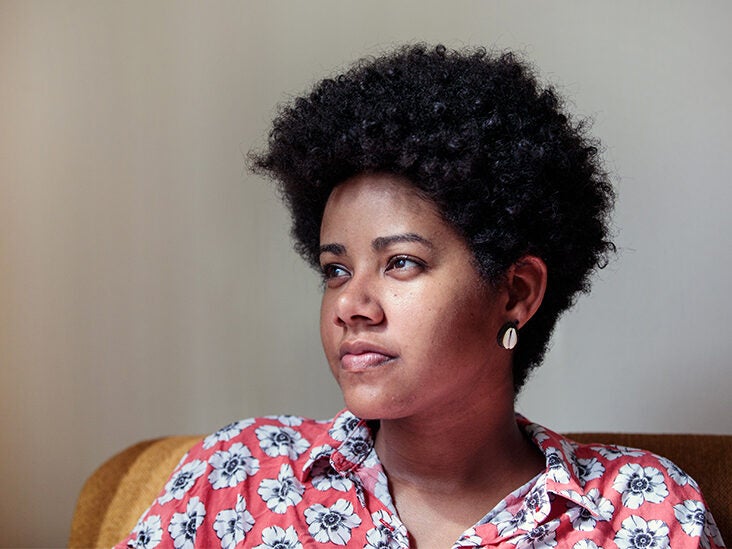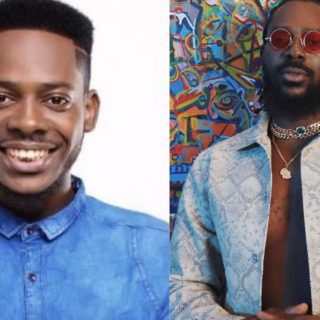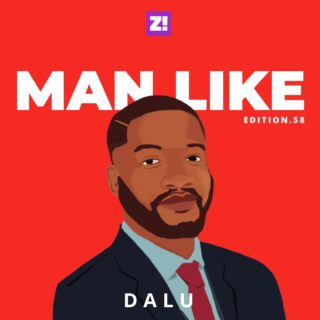Attention Deficit Hyperactivity Disorder (ADHD) is a mental health disorder that can cause above-normal levels of hyperactive and impulsive behaviours. People with ADHD may also have trouble focusing their attention on a single task or sitting still for long periods of time. While ADHD mostly affects children, some adults carry the disorder well into adulthood. I spoke with a few of those adults about living with the condition.
Femi
Initially, I was what people would call a “gifted child” so I was able to get away with not focusing and doing the work needed. Eventually, when I needed to sit and study, it was never easy and my parents and teachers could not understand the decline. I would spend 9 hours trying to study in order to 2-3 hours of actual study time.
In my 4th year of medical school, I could see the signs that I might have ADHD and I had developed coping mechanisms around it. Being a medical student, I was curious as I was able to tick off the symptoms and self-diagnose but I wanted to know if I was accurate. I went to a General Practitioner and told her some of my symptoms. She referred me to the psychology department to get a professional opinion. They asked a bunch of questions about when I first noticed my symptoms and stuff about my childhood.
I was offered medication but I refused it. I preferred going the route of psychotherapy and coping methods like breaking my work into segments. I don’t try to study all at once. I also use tricks like studying for 20 minutes and taking a 3-minute break to check Twitter or something, instead of forcing myself to study for long stretches. Exercise and meditation have also helped greatly.
Jumoke
My mom is a medical personnel and had made a general diagnosis. I had seen the signs of ADHD but I didn’t realise I had a problem until I got a job as a customer care representative. I used to drift off and my brain would get “hot” and shut down. In my job, I’d find myself opening multiple apps to reply to customers and end up replying to none. I thought I hated the job but I found out that I just couldn’t get anything done, no matter how hard I tried. I also used to become hyper fixated on people and things. I would find a bottle and suddenly it would seem like my life revolved around it.
I’d also get unnecessarily excited and would always interrupt people during conversations. Other times, I’d up by 2 in the morning, thinking about short term ideas and I’d be so hyper fixated, I wouldn’t be able to sleep till I get it done. I’ve registered for countless courses which I’ve failed to finish. Of course, it also affected me academically. I had to find my own method of studying. I always thought I was lazy but deep down, I just couldn’t.
I want to get a diagnosis and treatment ASAP because it’s messing up my life. I had to leave two jobs in the space of two months. Even though I’m bursting with ideas, it’s hard to work. I’m scared I might leave this new job too. I want to get professional help, but I’m not in that financial space.

Sam
Before my ADHD diagnosis, I always suspected something was wrong with the way I approached work: if the work was unstructured, I excelled at it.
As soon as something required managing schedules, repetition and project management, I quickly became inundated. Something as basic as sending an email was a chore. I tend to keep an email ‘in my head’ until I never eventually send it. Doing the same thing more than once frustrates me to the point of losing my temper, I cannot sit still in meetings, and I’m either unable to focus on anything, or I focus too hard on something until I’m spent in which case I never want to interact with that thing again.
Things got to a head when it began to increasingly affect work. It started to become more difficult when I switched careers. It strained me and nearly cost me my job. I just couldn’t bring myself to concentrate. It reflected poorly on me, and my employer was wondering about the disparity between what he knew I could do and what I was doing. Even I couldn’t explain it. Mercifully, my school provided mental health services as part of its perks and I had a consultation with a US-based therapist.
We went through a checklist and my family history, as well as my previous mental health profile (anxiety and depression, which apparently are ‘follow-come’ with ADHD) before she confirmed ADHD. Unfortunately, she couldn’t prescribe drugs from the US, so I had to get a Nigerian therapist here, who insisted on diagnosing me herself. She was even more rigorous, insisting on speaking to my parents to get my childhood data/history before making her assessment. She came to the same conclusion – Attention Deficit Hyperactivity Disorder.
The effects were immediate. I was able to focus, mostly, but the more important thing I’d describe as important is that I wasn’t experiencing that waxing and waning of interest/energy when I was working.
Tioluwanimi
I was diagnosed with ADHD last year. It wasn’t a surprise because I had problems with relating with people and doing tasks. One minute, I’m really into an activity and the next, I’ve lost all interest. I was always restless and could never focus on a task. I was also very hyperactive and disorganised, which caused a lot of friction between me and my mom. I had and still have a short attention span and I find it difficult to concentrate. I went from being an A student to a C student because I couldn’t settle down to study.
Currently, my treatment entails therapy, majorly anger management. I ghosted my ADHD therapy because I lost interest.

Bunmi
I didn’t confirm I had ADHD till I was 28. I was your regular gifted kid who excelled at everything. My report card always read, “She’s highly intelligent but overly restless.” I was there, living in my head with my overactive imagination and volatile emotions. I managed to get through most of my adulthood because there was structure and I had an extreme need to please people.
After uni, I lost all that structure in my personal life and began to struggle. At work, I still had some structure so I managed to do well. My job can be very demanding and somehow, my life narrowed down to the fulfilment of my role. I was incapable of managing my life alongside my job. I took a test in 2018 and discovered I had ADHD.
It’s been a rollercoaster ride of coffee, yoga and learning to be a lot less hard on myself. I’ve learned to understand the way I am and realise my brain is just different in some ways. I’ve also learned to cope with my weak points and plan to compensate for them in advance.

Jane
Life was an endless loop of trying and being exceptional at stuff but dropping the balls on the simple, mundane, everyday tasks. Everyone would lash me about not being able to do basic stuff and how disappointing it was not to have it together. I would then focus on that, causing my personal life to fall apart. A lot of times, I was told that I was lazy and good-for-nothing.
It was like everyone saw how “great” I could become, but no one saw how hard I was already trying. Toss in a couple of health complications, and I was a complete mess. By 19 I had contemplated suicide several times and attempted at least thrice.
I was 19 when I heard a nurse talk to a young mother about getting her hyperactive toddlers assessed for ADHD. I was curious enough to ask her about it, and she gave me a brief description (which did not stick), then made a comment about how I had it too. I researched and related so much to the symptoms. But one of the articles I read at the time said children grow out of it when they hit 18, so I dropped it.
Fast forward to 2020. I had hit a burn-out very late the previous year and could no longer tolerate physical human interactions or gatherings of any kind.
I stumbled into the Neurodiverse squad on Twitter and found adults living with ADHD and other neurodivergent conditions and it was an eye-opening experience. Their openness about the way the conditions present (as adults) helped me see that there’s a lot more to these conditions than I previously knew.
This led me to pay attention to myself, sort out what I struggle with, that isn’t normal I thought they were normal, and that people just knew how to manage them better than I could. It’s part of why I felt like a shitty human being and questioned my own right to be alive. So I started to pick apart what is normal and what is not. Then I put all of these together and got into testing and discovered I had ADHD.
My favourite coping mechanism so far is to lean into the chaos. Rather than expend a lot of energy trying to get my brain to work like society expects, (and failing and feeling like a failure because of it), I focus instead on the goal, and allow my brain to lead. But most importantly, apart from my visual reminders, I am starting to accept, that I am EPIC at some things, but I cannot be great at everything. And that’s fine.
Pelumi
I’ve been diagnosed with ADHD. I tend to walk around a lot and I cannot stay in a place. If I stay in a place, I might die.
My parents thought it was a horrible problem and used all type of methods to stop me from pacing around. I vividly remember they tied me to a chair one day. It’s just an unconscious habit for me. I just pace around without any thought to how it makes people around me feel uncomfortable. People don’t like twitchy people so I always have to comport but it’s so hard, man. I just find myself constantly apologizing for making them feel uncomfortable but I can’t help it. I’m Paul Walker. But seriously, it’s tough always looking like a mad man because my body just wants to walk around and I’m always fidgety and twitching.
I feel like it’s going to take a lot of conditioning for me to stop walking around or losing concentration but I’m willing to learn coping mechanisms to help me if the need arises.
QUIZ: Only Attentive Nigerians Can Answer These Random Questions





